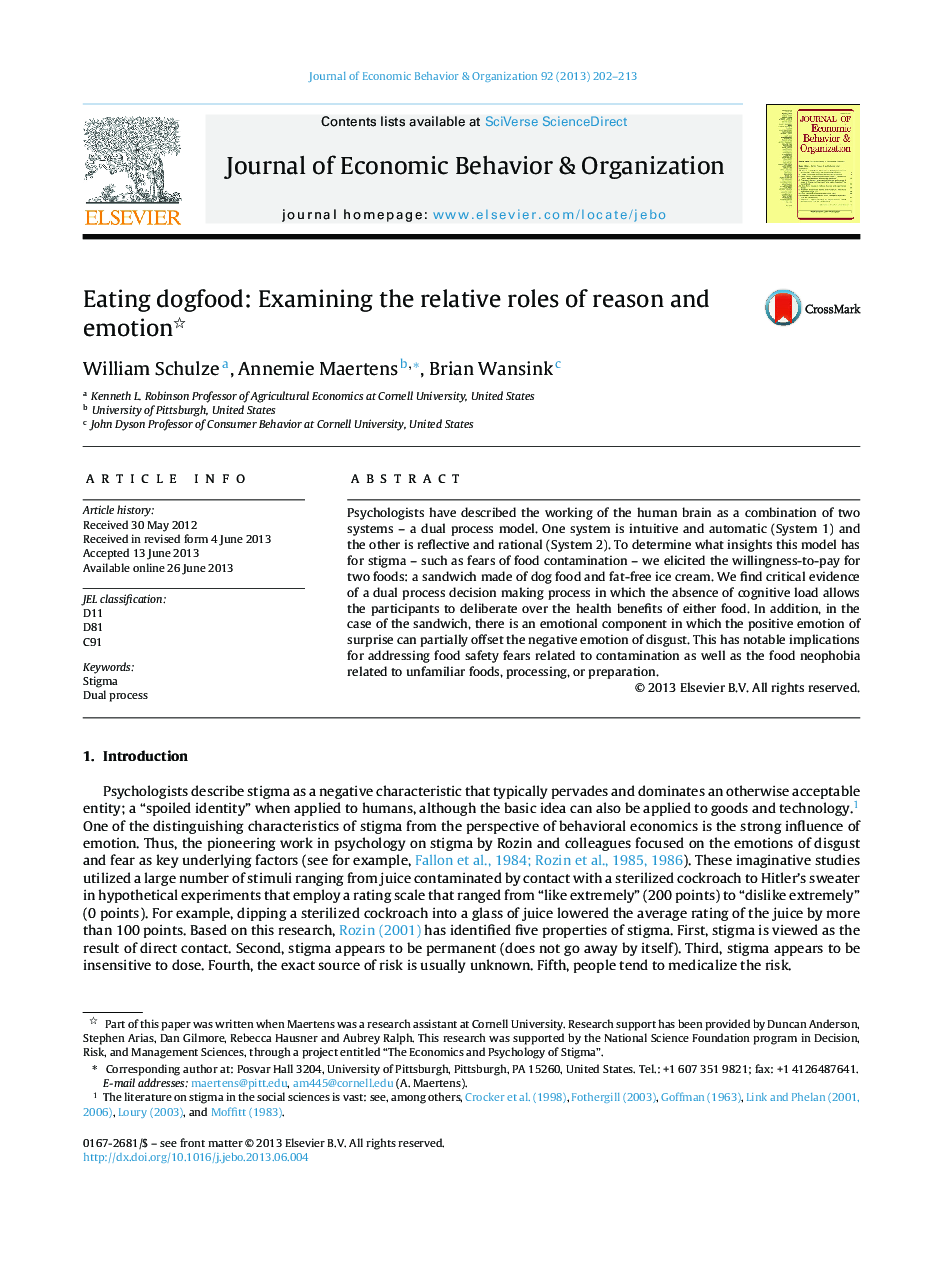| Article ID | Journal | Published Year | Pages | File Type |
|---|---|---|---|---|
| 7243804 | Journal of Economic Behavior & Organization | 2013 | 12 Pages |
Abstract
Psychologists have described the working of the human brain as a combination of two systems - a dual process model. One system is intuitive and automatic (System 1) and the other is reflective and rational (System 2). To determine what insights this model has for stigma - such as fears of food contamination - we elicited the willingness-to-pay for two foods: a sandwich made of dog food and fat-free ice cream. We find critical evidence of a dual process decision making process in which the absence of cognitive load allows the participants to deliberate over the health benefits of either food. In addition, in the case of the sandwich, there is an emotional component in which the positive emotion of surprise can partially offset the negative emotion of disgust. This has notable implications for addressing food safety fears related to contamination as well as the food neophobia related to unfamiliar foods, processing, or preparation.
Keywords
Related Topics
Social Sciences and Humanities
Economics, Econometrics and Finance
Economics and Econometrics
Authors
William Schulze, Annemie Maertens, Brian Wansink,
